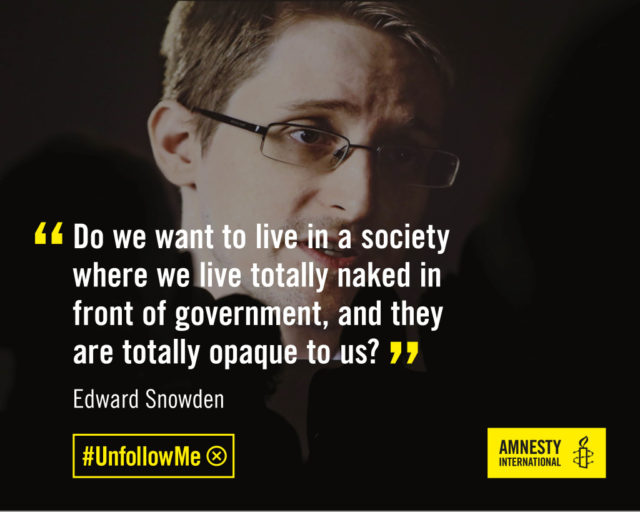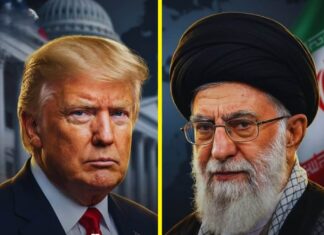What indeed makes Edward Snowden, a most wanted man, also the most popular internationally well acclaimed civil right activist on the digital frontier?
The government does indeed work in the interest of the people, but it is itself made of people too, so one can never guarantee the misuse of the said information it was accessing. For example, the NSA agents have been alleged to have been spying on their love interests too using a program called LOVEINT. When you armor somebody with the means to access the private lives of almost anyone, sooner or later misuse entails.
Using Snowden as an example, the US government is looking to prosecute him as a traitor because they allege that he has stolen over 1 million documents from NSA and other security agencies. As outrageous as it sounds, we know for a fact that the Snowden did indeed secretly access sensitive information, albeit with a moral purpose- what if some double agent was selling the secrets to terrorist organizations instead?
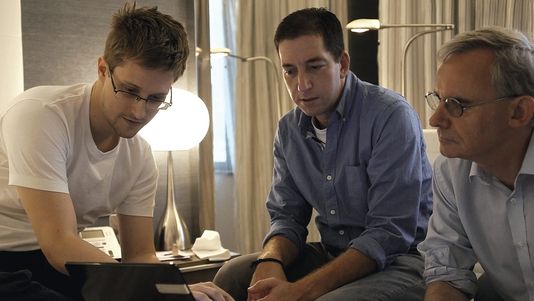
Edward Snowden was not the first whistleblower to shed light on the dark activities of his state, but the scale of how relevant the facts revealed were privately to everyone who was reading about him was greater than ever.
The Civil Disobedient
In a tussle between the law and the conscience, Snowden followed Thoreau’s footsteps to choose the conscience. Snowden expressed that the biggest motivation behind his whistleblowing was watching the Director of National Intelligence, James Clapper, most certainly lie under oath to Congress. It was against his conscience to allow the government to exploit the trust of her people.
The case of Snowden vs. the US government is a classic example of what follows when anybody, person or organization, is given too much power. Treading in the shadows of the epigram, “Absolute power corrupts absolutely,” we need to understand that any tipping of the scales in any one direction in the digital age can result in a global catastrophe.
How did the people take it?
Snowden is a public hero. He calls himself a patriot and expressed interest to vote in the upcoming US presidential elections. The leaks sparked off a huge public debate on nature and the practice of mass surveillance and initiated greater constitutional checks on the extent of such government programs.
He was declared The Guardian’s Person of The Year back in 2013 and is widely considered one of the most influential people on earth, an influence he uses very judiciously to keep educating people about the new digital age.
The world today may not be safer from the threats that the millennial has brought with it, but it certainly more transparent and aware of what goes behind the scenes. What people want is nothing more than the accountability, that when they entrust their lives upon the state, she is to uphold it against every adversity.
The Advocacy of his Clemency: Who, What, Why, How?
Yet, he took the chance because his conscience believed in the larger collective self-interest, that people had the right to know when their constitutional rights were being alarmingly violated.
The very significance of his humanitarian gesture that has won the sympathy and support of millions has prompted Amnesty International and Human Rights Watch to launch a petition, coinciding with the release of Oliver Stone’s biopic, to move the American President to grant clemency to Snowden.
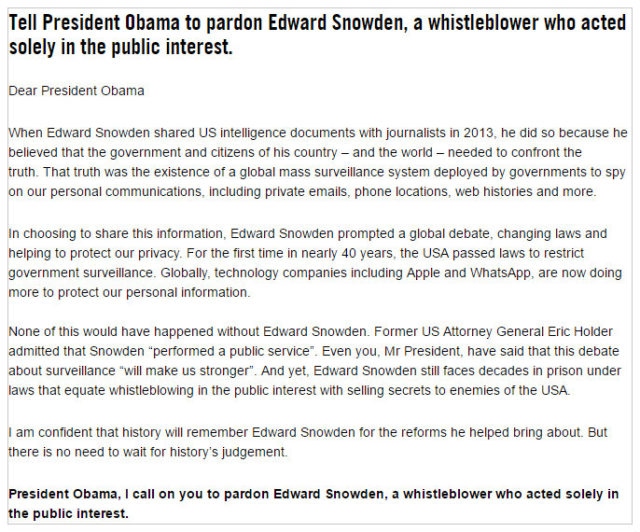
The kind of punishment he is looking at is a little too harsh, even considering the larger implications of his ‘crimes’. Considering that The Guardian and The Washington Post, and their reporters Glenn Greenwald and Ewan McAskill who published his reports won the Pulitzer, and the Laura Poitras an Oscar, he himself deserves to be lauded more than anybody else for the sheer conviction to follow his conscience.
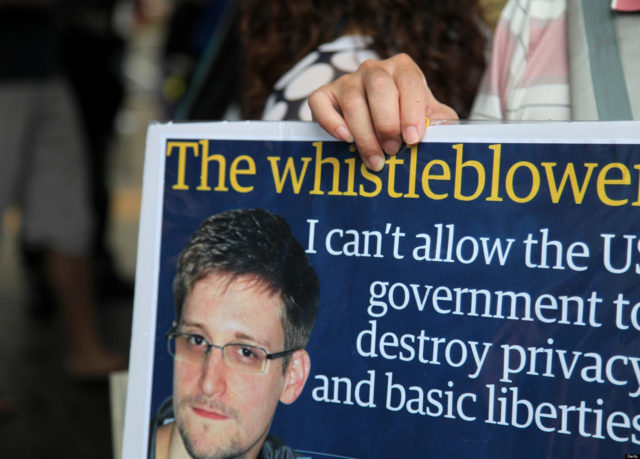
His objective was to point out the loopholes in a corrupt system rather than handicap a government. Many of the programs were indeed declared unconstitutional and were put in check. There is public awareness and sanction. That would never happen otherwise.
Now, the who’s who of the world has joined hands with Amnesty to advocate for his cause and raise awareness about his case. Such a harsh deterrent to such a noble move would prevent necessary whistleblowing in the future. Bernie Sanders is a torchbearer of sorts in his support, followed by Noam Chomsky, Susan Sarandon, Malkia Cyril, Mishi Choudhary, Bary Eisler, Lawrence Lessig, among many other whose testimonies you can read on Guardian here. Former President Jimmy Carter too said that he would pardon Snowden even if he was acquitted.
And they all are, thus, echoing the same general sentiment in favor of Snowden: He has done the USA a great public service, let him come home, be honored and at least given the reasonable doubt to be plead more relaxed sentences, if not forgiven, on ethical grounds.
Read more:
Part 1-
http://edtimes.in/2016/09/demystifying-snowden-how-edward-snowden-became-the-worlds-most-wanted-man/
http://edtimes.in/2016/09/less-than-10-ngos-fill-in-their-income-tax-returns-so-much-for-being-the-good-guys/
http://edtimes.in/2016/07/quoraed-countering-blacklivesmatter-alllivesmatter-doesnt-make-sense/




























